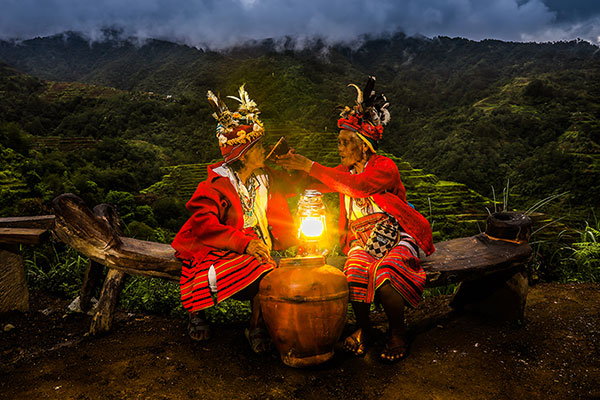WHAT
This public webinar, held in observance of the International Day for Biological Diversity 2025, explores the vital links between biodiversity, human rights, and sustainable development. The theme for this year, “Harmony with Nature and Sustainable Development”, emphasises the urgent need to align biodiversity conservation with the Sustainable Development Goals (SDGS) and the Kunming-Montreal Global Biodiversity Framework (KM-GBF).
This discussion will examine how biodiversity protection is essential to the enjoyment of human rights, including the right to a clean, healthy, and sustainable environment, and how human rights, such as access to information and public participation, are critical to effective biodiversity policy.
WHEN
Thursday, 22 May 2025 at 3.00 pm to 4.00 pm Indochina Time. Please check your timezone here.
WHERE
Online event. Register for the event.
WHO
- Mrinalini Rai, Founder and Director, Women4Biodiversity
- Surya Deva, UN Special Rapporteur on the Right to Development
- Benjamin Schachter, Coordinator, Environment and Climate Change Unit, UN Human Rights
- Romchat Wachirarattanakornkul, Environment and Climate Change regional focal point, UN Human Rights – Moderator
WHY
- To increase public understanding of the connections between biodiversity conservation and human rights and to bolster public awareness of biodiversity’s centrality to all life on Earth, including socioeconomic challenges such as poverty and inequality that are covered by the full set of SDGs.
- To foster a platform for discussion among experts, activists, and the general public on the challenges and opportunities at this intersection.
- To inspire participants to engage in and advocate for policies and practices that protect both human rights and biodiversity.
- To call for the rapid preparation of National Biodiversity Strategies and Action Plans (NBSAPs) that are aligned with the KM-GBF and integrated into National Sustainable Development Strategies guided by the SDGs and a human rights-based approach.


Event Summary
Under the theme, Harmony with Nature and Sustainable Development, the webinar explored the interconnections between human rights, biodiversity, and sustainable development, with panellists discussing urgent challenges and solutions.
Surya Deva, the UN Special Rapporteur on the Right to Development, highlighted the need to recognise nature’s rights and shift from viewing biodiversity as a means to an end. Benjamin Schachter, Coordinator of the Environment and Climate Change Unit at UN Human Rights, emphasised the importance of a human rights-based approach to biodiversity action and the need for stronger monitoring frameworks. Mrinalini Rai, Founder and Director of Women4Biodiversity, focused on the impact of economic development models on biodiversity in Asia, particularly highlighting the lack of recognition of indigenous peoples’ rights and the need for balanced approaches to harmony with nature. The panellists agreed that achieving the targets of the Kunming-Montreal Global Biodiversity Framework (KM-GBF) and the Sustainable Development Goals (SDGs) by 2030 requires a human rights-based approach, better resource mobilisation, and stronger national implementation strategies. The virtual event was moderated by Romchat Wachirarattanakornkul, the Environment and Climate Change regional focal point at UN Human Rights – Asia.
Biodiversity Challenges in Asia-Pacific
Mrinalini identified economic development pressures, including large-scale infrastructure projects like dams, mining, and plantations, as major drivers of regional biodiversity degradation. While some of these projects are labelled “green” or “clean energy,” they often undermine conservation efforts and lack recognition of indigenous peoples’ rights to traditional knowledge and land stewardship.
She further noted the challenge of balancing economic aspirations with environmental sustainability and emphasised the need for a harmonised approach to development that respects ecological integrity. Benjamin and Surya highlighted corporate accountability as a key factor in addressing environmental harm and biodiversity loss.

Connection Between Biodiversity, KM-GBF and SDGs
Benjamin provided an overview of the framework, which sets targets for 2030 alongside a long-term vision for 2050. He highlighted its explicit requirement for a human rights-based approach and reaffirmed its recognition of the right to a clean, healthy, and sustainable environment.
Key human rights elements within the framework include,
- Target 22: Ensure Participation in Decision-Making and Access to Justice and Information Related to Biodiversity for all
- Target 23: Ensure Gender Equality and a Gender-Responsive Approach for Biodiversity Action
Benjamin further advocated strengthening monitoring mechanisms by integrating human rights indicators to ensure effective implementation.
Surya stressed that biodiversity is foundational to all 17 SDGs, not just SDG 15 (Life on Land). He noted that billions depend directly on biodiversity for livelihoods (SDG 1) and food security (SDG 2). Additionally, Surya highlighted how women are disproportionately impacted by biodiversity loss in patriarchal societies (SDG 5). He called for a planet-centred, participatory model of development that accounts for ecosystem interdependence and emphasised the importance of intergenerational equity in conservation strategies.

Corporate Accountability for Biodiversity Protection
Benjamin identified businesses, particularly those in extractive industries, as significant drivers of environmental crises due to their pursuit of wealth without proper regulation. He highlighted that historically, these industries have been linked to environmental harm and the displacement of indigenous communities.
Surya warned against corporate narratives that commodify nature as “natural capital” to be traded on stock exchanges. He also pointed out that corporate lobbying shapes weak environmental regulations, ultimately undermining conservation efforts.
Poll results showed that corporate accountability ranked second among audience responses regarding the most impactful approach for biodiversity protection.

Biodiversity Participation Barriers and Solutions
The panel discussed barriers to meaningful participation in biodiversity conservation, including access to information, corporate lobbying, shrinking civic space, and discriminatory socio-cultural norms affecting women’s involvement.
Surya identified a lack of access to information as a significant hurdle, noting that technical jargon often limits comprehension. Tina emphasised the importance of capacity-building initiatives to demystify complex terminology, such as “digital sequence information,” making biodiversity discussions more accessible. She also highlighted the financial constraints marginalised communities face, which prevent their effective participation in decision-making processes. Benjamin stressed the need to address power imbalances and cultural differences in participation models. At the same time, Surya pointed out that environmental defenders are frequently labeled as “anti-development” or “anti-national,” contributing to hostile engagement environments.
The discussion also covered strategies for convincing government officials about biodiversity, such as integrating it into political discourse, using visual advocacy tools, and building relationships with decision-makers. The role of cooperation in decision-making was highlighted, focusing on ensuring that participation is inclusive and respects human rights.

Breaking Policy Silos for Effective Biodiversity Action
Surya called for breaking silos between biodiversity, climate change, and sustainable development policies, advocating for human rights to serve as a cross-cutting foundation across all environmental and governance frameworks.
Ben emphasised the necessity of ensuring coherence between global biodiversity frameworks and national implementation strategies, while Tina stressed building synergies between international commitments.
Benjamin also highlighted OHCHR’s collaboration with the UN Environment Management Group, aimed at integrating human rights considerations into National Biodiversity Strategies and Action Plans (See Guidance on integrating human rights in National Biodiversity Strategy and Action Plans – NBSAPs).
The event highlighted the interlinkages between biodiversity, climate change, and human rights, urging participants to reflect on how climate response measures should not negatively impact biodiversity. The session concluded with a call to action, encouraging participants to engage with UN agencies and continue the conversation on biodiversity and human rights.



